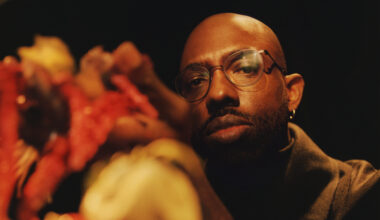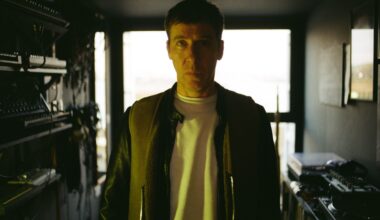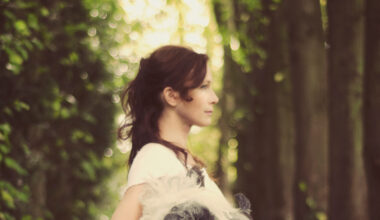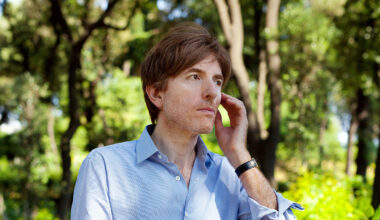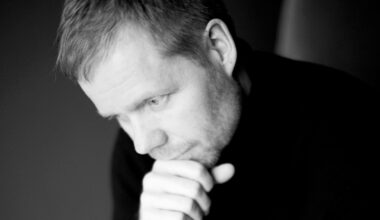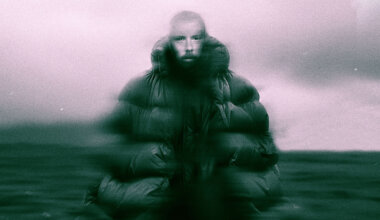The Divine Comedy’s Neil Hannon discusses some of the influences that have shaped him and his spiffing and surprisingly synth-heavy album ‘Office Politics’
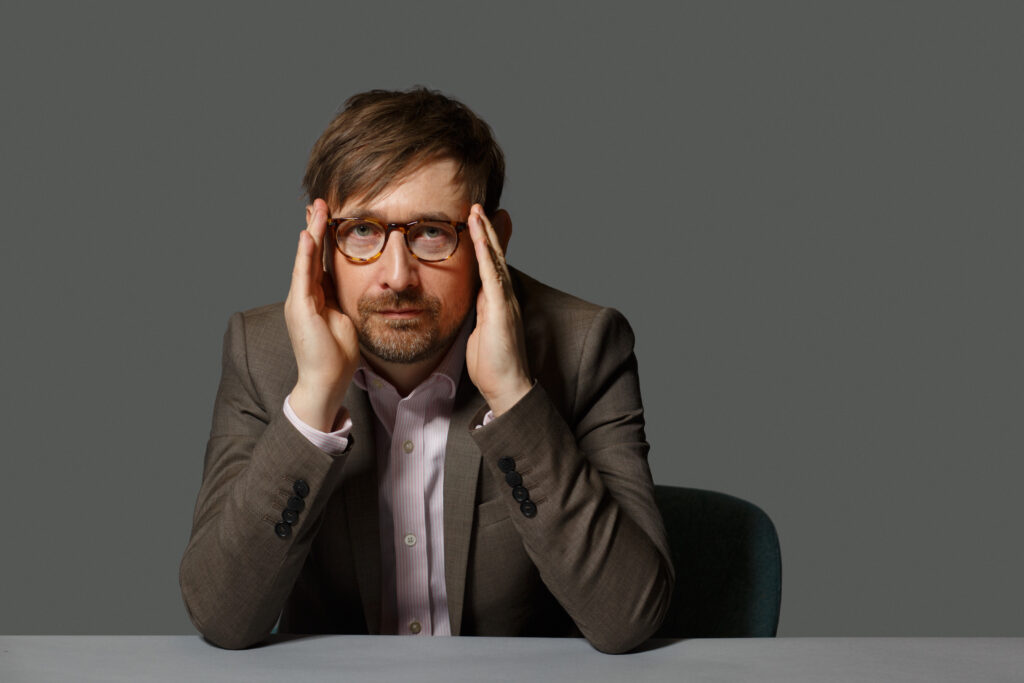
‘Doctor Who’
“I think, like a lot of people of my age, Tom Baker really was the weird uncle I never had. He was so mental and yet so fluffy and cuddly. I didn’t really know what ‘Doctor Who’ was about when I was watching it as a small child, but it was definitely a very large part of my childhood. You always take things like the theme tune for granted when you’re that age, it’s only later on you realise just how phenomenally original it is. To think that a lot of it is just tape loops, it’s mind-boggling how they achieved it.”
Kraftwerk
“I suppose Kraftwerk was the first time I consciously heard synthesisers and I thought, ‘Bloody hell, what’s that?’. I can still vividly remember seeing the episode of ‘Tomorrow’s World’ they were on. Seeing these guys in suits, pointing at weird things with large dials and knobs, and playing what looked like baking trays covered in tin foil… It was all The Osmonds and Bay City Rollers back then, so to hear something like that, sounds you’d never heard before…”
British Synthpop
“Between Kraftwerk albums, there was the flood of British synthpop. The first I remember was ‘Cars’ by Gary Numan. I liked cars. I wanted to design cars when I was nine, so I thought this was a marriage made in heaven – a cool pop tune made by someone who was clearly from a different planet, talking about his car. I wasn’t buying records yet, but I remember loving all the synthpop singles – OMD’s ‘Souvenir’ was a special favourite – and The Human League’s ‘Dare’, that’s the album that lasted the longest for me. It’s in my top three albums. It’s so fresh.”
Indie Schmindie
“Had I been a couple of years older with the wherewithal to get myself a synth in 1983, my musical output might have been very different from the outset. But as it turned out, by the time I got the money to get an instrument, I’d become an indie kid and got myself a guitar. I think it’s U2’s fault and a tape of ‘Under A Blood Red Sky’. That rather opened my eyes to the possibilities of guitars, which up until then I’d thought were only for Bryan Adams. I was just way into indie schmindie land. I was into My Bloody Valentine, REM, Pixies and all the late 80s clobber. Imagine if I’d have got a synth first. I could have been in the fucking Chemical Brothers or something.”
Neil Tennant’s Lyrics
“I really looked up to Neil’s ability to squirrel interesting and profound and sometimes quite intellectual lyrics into what sounded like throwaway pop. I always looked for instances of that happening to prove you’re allowed to do that. Lyrics are very important to me. It’s rare that I’m interested in something where the lyrics are obviously fluff, but I do love ‘Pop Musik’ by M.”
My Prophet-5
“I have a Prophet-5, which I’m very proud of, and am kind of in love with. I can hear the pre-set sounds going off in ‘Ghosts’ by Japan and it makes me feel good. It’s all over my current record.”
TV Theme Tunes
“I’ve always had a vague longing to be Ronnie Hazlehurst as well as a pop star. Those guys are cool. It’s a real art form doing sitcom themes and I’m glad to have been able to do a couple. Doing ‘Father Ted’ was a very useful synchronicity. It made a real difference, because journalists had a new angle they could write about when ‘Casanova’, the third Divine Comedy album, came out. Interesting fact, the guitar I played the solo on, that belonged to The Jesus And Mary Chain.”
‘A Room With A View’
“I’m always rather ashamed of this, but the film that’s had the most impact on me is ‘A Room With A View’, the Merchant Ivory version of the EM Forster book. When it came out, I was at my most sensitive and impressionable. This winsome young man absolutely adored the whole thing – the world, the music, the comedy of manners and the romance, the gowns… everything. I loved it. If I was glum, I would watch that film to cheer me up.”
Early 20th Century Classical Music
“I really love Ravel, Stravinsky and Vaughan Williams. They were still working vaguely within the rules of musical form, but they’re really out there, pushing the boundaries. When it gets to out-and-out modernism after the war, I just lose interest completely. It’s funny though, I guess in a way, with my interest in the very beginnings of electronic music, I’m bending my rules a bit about musique concrète and the modernism of that – of found sounds. But really, when it comes to classical music, I only start to get interested again when minimalism comes along.”
Philip Glass And Steve Reich
“Their music is extremely musical and harmonic, it’s just that it’s episodic. It loses the European beginning, middle and end theory, like, ‘To hell with sonata form, we’re just going to play the same two notes for 10 minutes’. I love a lot of it. There’s a song on ‘Office Politics’ called ‘Philip And Steve’s Furniture Removal Company’, which was inspired by finding out that they did actually have a removal business for a while in New York before they were well known.”
La Cigale, Paris
“I took part in this little festival night at La Cigale in 1994. I played a cover of ‘Jacky’, the Jacques Brel song, in a Scott Walker style, and the audience went completely… they just fucking loved it. After that, I was recognised on the French indie scene. In many ways, that one night gave me the confidence to go back to the UK and everywhere else, and think ‘Yes, I am good, I can do this, I am going to be a pop star!’. I’m glad it happened, but I don’t like thinking about these things, because then I start wondering what would have happened to me if I hadn’t done that.”
‘Office Politics’ is out on DC
